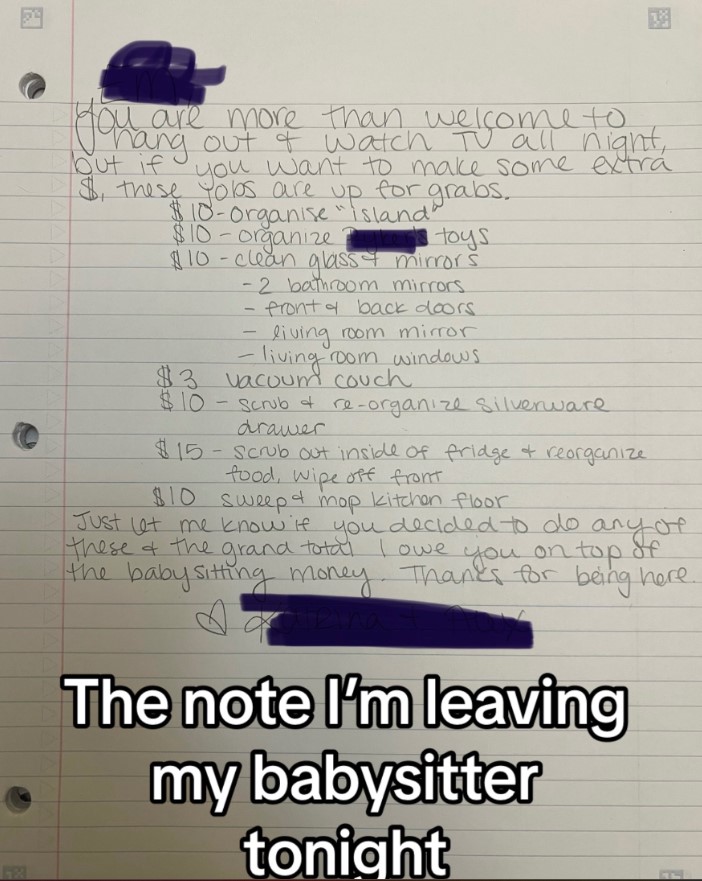
A mother received criticism after leaving a chore list for her 17-year-old babysitter with low payment options.
The mom hired the babysitter to look after her 2-year-old son and offered additional cash for tasks like cleaning, organizing, and vacuuming.
Some social media users expressed surprise at the low payment, calling it "1990 prices."

The mother, Katrina Ivan, hired a 17-year-old high school senior to babysit her 2-year-old son.
However, what caught people's attention was the optional chore list that Katrina left for the babysitter, offering additional payment for completing various tasks.
The controversy arose when some social media users criticized the prices mentioned on the list, comparing them to rates from the 1990s.

When the babysitter arrived at Katrina's house, she found a note detailing the optional chores she could undertake to earn extra money.
Tasks such as organizing the kitchen island, cleaning windows and mirrors, sweeping and mopping the kitchen floor, and even cleaning out the fridge were listed, with corresponding amounts assigned to each task.
The total potential earnings amounted to $60, in addition to the $75 the babysitter was already being paid for the four hours of work.

While some people applauded Katrina's initiative, considering it an opportunity for the babysitter to earn extra cash while looking after the child, others were critical of the prices mentioned on the list.
Social media users pointed out that the rates seemed outdated, reminiscent of prices from the 1990s.
This sparked a debate about fair compensation for babysitters and the value of their services.
Supporters argued that the optional nature of the chores made it the babysitter's choice whether to undertake them or not.

They believed that any additional compensation would be a bonus for the babysitter and that Katrina's approach was a creative way to keep the babysitter engaged during the job.
On the other hand, critics felt that the prices mentioned for the chores were too low, considering the effort and time required to complete them.
They shared personal experiences of being underpaid for similar tasks and expressed concern that such low rates could perpetuate the undervaluing of domestic work.




